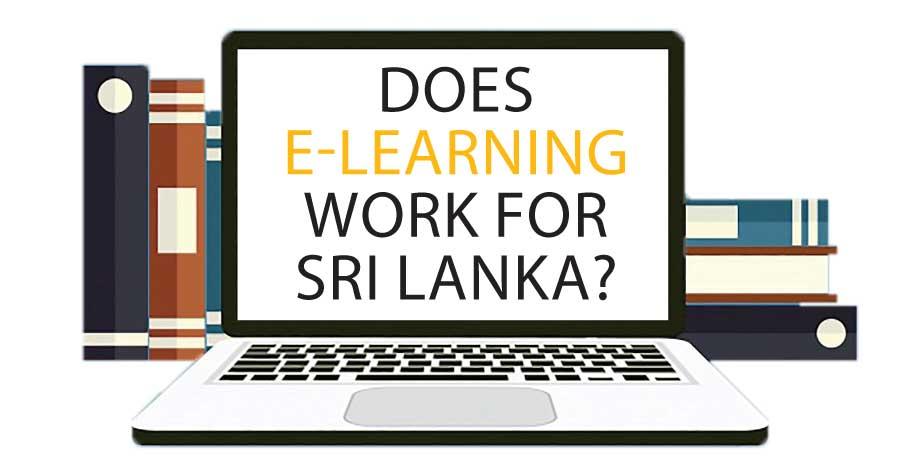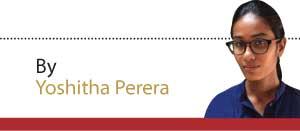13 Jan 2021 - {{hitsCtrl.values.hits}}

The challenges in going forward in 2021
The COVID-19 pandemic has resulted in closure of schools across the world and globally over 1.2 billion children are out of the classrooms. This situation has consequences in Sri Lanka as well resulting in a dramatic change in  the country’s education system with the distinctive rise of e-learning in 2020.
the country’s education system with the distinctive rise of e-learning in 2020.
In this backdrop the Daily Mirror ‘Insight’ spoke to Attorney at Law Indika Perera, and specialist on peace and conflict studies, a visiting lecture of Department of Philosophy at Kelaniya University and a member of the Ethical Review Committee of the Faculty of Medicine.
Explaining the overall education system and the changes which took place in 2020 Mr. Perera said that the whole system was never ready for distance education.
“All the educational institutes, even institutes such as Open University, a platform which was originally established for distance education, couldn’t practice the distance learning properly. Our school education system is also not totally geared to handle the e-learning platforms,” he opined.
"The live ‘one to one’ sessions are activity based and teachers are attempting to build up the eye contact, but in the e-learning process it was difficult to make such relationship."
Mr. Perera said that the whole idea of distance education have a different outlook and approach. “Based on those elements, the educational materials and the knowledge have to be separately presented,” he said.
With this sudden shift from classroom education to distance education, now the country questions whether the adoption of online learning will continue to persevere in a post-pandemic world and how such a shift would impact the country’s education market.
“This is a serious challenge. In other parts of the world, the teachers are trained and they are familiar with the online platforms, which used all the distance education and the technology tools, even before the pandemic. Also the students are aware of the open book concept,” he said.
"When we are doing one to one sessions in normal practice, it was difficult to get the students attention properly"
Compared to above situation, in Sri Lanka teachers and students were trained to ideate a face-to-face education system and currently are forced to use the online platform without a proper training or guidance, Mr. Perera said.
He highlighted the fact that most of the teachers are using same face-to-face methodology even within the online platforms and this situation had seriously affected the future of Sri Lankan education.
“The lack of basic knowledge regarding to the distance education has enabled further distance from the Sri Lankan society. On top of that we have the infrastructure issue,” he said.
Around 30% of students are believed to be using internet in the country and even some people who are using internet does not have the proper connection facilities. “This situation also indicates capitalization on the people who have the access to the technology. The situation is again turning to the early 1900s, where people who had access to books had the knowledge,” he said.
Mr. Perera said that the country’s education system enters 2021 with these challenges and the relevant authorities have to take immediate measures to step out of this situation.
“There are several major issues when conducting e-learning for special needs students” – Nuwanda Athawuda, Speech Therapist
Both special and general-education teachers are about the methods related to distant learning. They need to design and introduce assignments and those with special needs are especially hard hit by the pandemic. The Daily Mirror ‘Insight’ had also spoken to Speech Therapist Nuwanda Athawuda to share her experience about teaching special needs students online.
She said that the COVID-19 pandemic has triggered many changes in special needs education. While most students have had routines interrupted, the children perhaps most affected by that disruption are special education students.
“When we are doing one to one sessions in normal practice, it was difficult to get the students attention properly. Now, when we are using e-learning platforms it doubles the work to keep their concentration on,” she said.
The live ‘one to one’ sessions are activity based and teachers are attempting to build up the eye contact, but in the e-learning process it was difficult to make such relationship.
“Generally, in special education, one of the strategies that work the best is structured routine and in normal ‘one to one’ sessions we can create that setting. In the current situation parents have to establish that routine and it is very difficult for them,” she said.
"All the educational institutes, even institutes such as Open University, a platform which was originally established for distance education, couldn’t practice the distance learning properly"
She added that although there were major issues when using e-learning platforms the plus point is parents can interact with the sessions directly and they are also focusing on it.
“In this scenario, the parents have the idea of what we are doing with the children and how can they incorporate with the learning process of these students,” she said.
27 Nov 2024 41 minute ago
27 Nov 2024 2 hours ago
27 Nov 2024 2 hours ago
27 Nov 2024 2 hours ago
27 Nov 2024 2 hours ago